Contributors to Issue XIV
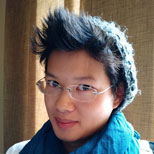
Jasmine An
Jasmine An comes from the Midwest. She has also lived in Chiang Mai, Thailand, studying language, urban development and climate change, and blacksmithing. Her chapbook, Naming the No-Name Woman, won the 2015 Two Sylvias Press Chapbook Prize, and her work can be found or is forthcoming in HEArt, Stirring: A Literary Collection, The Blueshift Journal, and Nat. Brut, among others. She is Poetry Editor at Agape Editions, a Hedgebrook alumna, and a PhD student in English & Women’s Studies at the University of Michigan.
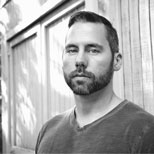
Graham Barnhart
A Wallace Stegner Fellow, Graham Barnhart received his MFA from The Ohio State University and served as a US Army medic in Iraq and Afghanistan. His work has appeared in The Beloit Poetry Journal, The Gettysburg Review, Gulf Coast, and others, and is forthcoming from Horsethief, Prelude, and Tinderbox. He is a recipient of The Jeff Sharlet Memorial Award for Veterans, and The Chad Walsh Poetry Prize.

Andrea Cote Botero
Andrea Cote Botero (Barrancabermeja, Colombia, 1981) is the prize-winning author of the poetry collections Puerto Calcinado (2013), La ruina que nombro (2015), and Chinatown a toda hora (2017). Recognized as one of the most relevant new voices in contemporary Spanish American poetry, her work has appeared in numerous anthologies and she has been invited to read her work at a wide-range of poetry events in Asia, Europe, and the Americas. Her poems have been translated into many languages, including Arabic, Catalan, Chinese, English, French, German, Italian, and Macedonian. Cote Botero is also a translator of poetry from English into Spanish and currently holds the position of Assistant Professor of Creative Writing in the Bilingual MFA program at the University of Texas, El Paso.

Nat Bransky
Nat Bransky is an Arizona artist and researcher working toward a Master’s in Environmental Sciences and Policy and Northern Arizona University. His research, combined with nonprofit Grand Canyon Youth river trips, have sent him down the entire 277-mile stretch of the Colorado River through Grand Canyon National Park multiple times. He is instilled with love for the teeming diversity found in Southwestern landscape, both artistic and biological, and has a particular fondness for the Grand Canyon, which is depicted in most of his artwork. His pieces convey the elusiveness of the Canyon, as its absolute splendor cannot be represented by any work of realism.
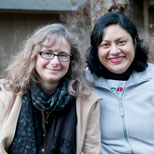
Wendy Call
Wendy Call is an author, editor, translator and educator in Seattle, Washington. She wrote No Word for Welcome (Nebraska, 2011) and co-edited Telling TrueStories (Penguin, 2007). She translates Irma Pineda’s poetry into English, with support from the National Endowment for the Arts and Wang Center at Pacific Lutheran University, where she teaches creative writing and environmental studies.
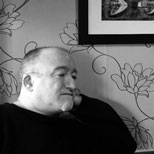
Maurizio Castè
Born in Rome in 1961, Maurizio Castè has a degree in Theater and one in Philosophy of Language. He has been active for three decades as an actor, director, composer and musician. He has published a poetry collection, Libro Chiuso (Firenze Libri). His poems are also featured in the anthologies Porte e Tempo (Progetto Cultura, 2016-17), and Navigare (n. 84, Pagine, 2017).
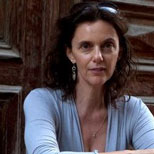
Joanna Chen
Joanna Chen is a translator and essayist. Her own writing has been published in Guernica, Poet Lore, Narratively, Cactus Heart, and others. “Less Like a Dove” was published in 2016 by Shearsman Books. Her translations from Hebrew and Arabic have been published in Poetry International, Mantis, Asymptote, Consequence, and many others. She writes a column for The Los Angeles Review of Books
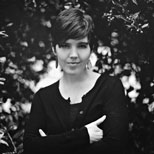
Kendra DeColo
Kendra DeColo is the author of My Dinner with Ron Jeremy (Third Man Books, 2016) and Thieves in the Afterlife (Saturnalia Books, 2014), selected by Yusef Komunyakaa for the 2013 Saturnalia Books Poetry. Her poems and essays appear in Los Angeles Review, Gulf Coast, Bitch Magazine, VIDA, and elsewhere. She is co-host of the podcast RE/VERB: A Third Man Books Production and she lives in Nashville, Tennessee.

Brian Komei Dempster
Brian Komei Dempster’s debut book of poetry, Topaz (Four Way Books, 2013), received the 15 Bytes 2014 Book Award in Poetry. Dempster is editor of From Our Side of the Fence: Growing Up in America’s Concentration Camps (Kearny Street Workshop, 2001), which received a 2007 Nisei Voices Award from the National Japanese American Historical Society, and Making Home from War: Stories of Japanese American Exile and Resettlement (Heyday, 2011). He is a professor of rhetoric and language at the University of San Francisco, where he also serves as Director of Administration for the Master of Arts in Asia Pacific Studies.

Kara Dorris
Kara Dorris earned a PhD in literature and poetry at the University of North Texas where she teaches writing. Her poetry has appeared in Prairie Schooner, I-70 Review, Southword, The Tusculum Review, Harpur Palate, Cutbank, Hayden Ferry Review, Tinderbox, The Tulane Review, and Crazyhorse, among others literary journals, as well as the anthology Beauty is a Verb (Cinco Puntos Press, 2011). Her stories have appeared in Wordgathering and the anthology The Right Way to be Crippled and Naked (Cinco Puntos Press, 2016). She has published three chapbooks: Elective Affinities (Dancing Girl Press, 2011), Night Ride Home (Finishing Line Press, 2012), and Sonnets from Vada’s Beauty Parlor and Chainsaw Repair (forthcoming from Dancing Girl Press in 2018). She is also the editor of Lingerpost, an online poetry journal.

Jaclyn Dwyer
Jaclyn Dwyer has published stories, essays, and poems in a number of literary magazines, including Ploughshares, Pleiades, Witness, Indiana Review, Electric Literature, and Salon. She received a Tennessee Williams Scholarship in Fiction to attend the Sewanee Writers’Conference. She earned a PhD in Creative Writing from Florida State University, where she received a Kingsbury Fellowship. Her full-length poetry collection, The Bride Aflame, will be published by Black Lawrence Press in April 2019. She lives in Ohio with her husband and daughters where she is at work on a novel.

torrin a. greathouse
torrin a. greathouse is a genderqueer trans woman & cripple-punk from Southern California. She is the Editor-in-Chief of Black Napkin Press. Their work is published/forthcoming in Bettering American Poetry, Redivider, BOAAT, The Offing, Tinderbox, and Frontier. She is the author of two chapbooks, Therǝ is a Case That I m (Damaged Goods, 2017) & boy/girl/ghost (TAR Chapbook Series, 2018). When they are not writing, their hobbies include pursuing a bachelors degree, awkwardly drinking coffee at parties, & trying to find some goddamn size 13 heels.
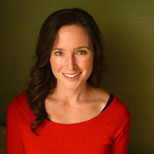
L.I. Henley
L.I. Henley was born and raised in the Mojave Desert town of Joshua Tree, California. She is the author of two chapbooks, Desert with a Cabin View, and The Finding (Orange Monkey Publishing). Her second full-length collection, Starshine Road, won the 2017 Perugia Press Prize. She is the recipient of The Academy of American Poets University Award, The Duckabush Prize in Poetry chosen by Lia Purpura, and two prizes through The Poet’s Billow. She edits the online literary and art journal,Aperçus. Visit her at lihenley.com.
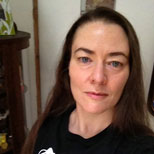
Willa Jarnagin
Willa Jarnagin is a poet and visual artist. By day she’s a web designer.

Michelle L. LaPena
Michelle L. LaPena is a member of the Pit River Tribe and a mother of three. She is an Indian law attorney, and has owned and operated an Indian law practice since 2006. She has lectured at primary, secondary, and university levels on topics related to California Indians and federal Indian law for over two decades. In addition, she has published a number of law review articles, essays, and nonfiction articles on topics relative to her work with California Indian tribes. She received her B.A. in 1993 and her J.D. in 1998, both from the University of California, Davis. She recently earned her M.F.A. in Creative Writing at the Institute of American Indian Arts. She is a recipient of the 2015 Truman Capote Creative Writing Fellowship and the American Indian College Fund’s Full Circle Scholarship.
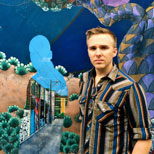
Lawrence Lenhart
Lawrence Lenhart studied writing at the University of Pittsburgh and holds an MFA from the University of Arizona. His essay collection, The Well-Stocked and Gilded Cage, was published in 2016 (Outpost19). His prose appears in Alaska Quarterly Review, Creative Nonfiction, Fourth Genre, Greensboro Review, Gulf Coast, Passages North, Prairie Schooner, Terrain.org , Western Humanities Review, and elsewhere. He is a professor of fiction, nonfiction, playwriting, and climate fiction at Northern Arizona University and a reviews editor and assistant fiction editor of DIAGRAM.
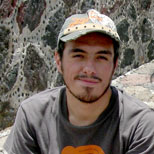
Sergio Loo
The Mexican writer Sergio Loo (1982-2014) was the author of several books of poetry, including Sus brazos labios en mi boca rodando (2007), as well as a novel, House: retratos desarmables (2011).
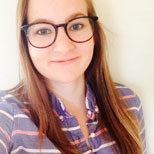
Olivia Lott
Olivia Lott is a Ph.D. student and Olin Fellow in Hispanic Studies at Washington University in St. Louis, specializing in contemporary Spanish American poetry and literary translation. She is the recipient of a 2015-2016 Fulbright Grant for the translation of new poetry from Colombia. These translations have been published in journals in and beyond the United States, including Latin American Literature Today, Río Grande Review, Tupelo Quarterly, Sakura Review, Círculo de Poesía, La Raíz Invertida, Otro Páramo, as well as in an anthology of new poetry from Colombia which recently came out with Mantis. Her edition of a collection by Cuban poet Soleida Ríos is forthcoming from Kenning Editions.

Michael Martone
Michael Martone was born in Fort Wayne, Indiana. It had been a difficult labor and delivery. His mother, telling him the story of his birth each year on his birthday, told him she remembered nothing of it but being told by her doctor moments before he placed her under anesthesia that she would remember nothing. But she did remember waking up, remembered the first thing she saw upon waking was Martone’s father, sitting at the edge of the bed, his forehead pressed against the rough wool blanket covering her now deflated lower body. “We lost the baby?” she remembers asking Martone’s father who, at that moment, sat up to deliver the news that no, they hadn’t lost the baby, that he was around here someplace. During those birthdays after the rehearsing of the difficult birth and delivery of Martone, Martone’s mother would then review with Martone Martone’s Baby Book Martone’s mother had begun almost the minute she returned home with the baby. A scrapbook, a picture album, the baby book was a commercial template designed to guide the new mother through the milestones and transitions of the infant, toddler, child. The book contained prompts: Baby’s first smile, Baby’s first step, Baby’s first word, Baby’s first baby tooth. There were empty squares and rectangles sketched out on the pages to indicate where the new mother was to affix photographic documentation of events and attach solid evidence — a lock of newly shorn hair, a remnant of outgrown onesie, a silent rattle, or tarnished spoon — the residue of growth. A knit bootie, a hospital cap. Baby’s first shot, Baby’s first cousins, Baby likes to eat, Baby sleeps through the night. Over the years, the Baby Book grew fat, filled with the trinkets and detritus of Martone’s growing up, its pages brittle from the drying glue and ink-stained smeared from all the annotations Martone’s mother added to the margins and, in some cases, the photographs and ephemera itself. On those birthdays Martone’s mother read to Martone the content of Martone’s Baby Book she always read backwards, beginning on a last page that had only recently been completed, documenting events only a few months old — Baby’s first baby, Baby’s first mortgage — and working backwards through the years, the accumulation of evidence and layers of time shedding, sloughing off, a grand collage of digression, a kind of archeological dig back through the spoil to the unspoiled spot, to the day of the birth itself and the unreconstructed memories of the difficult labor and delivery. Michael Martone was born in Fort Wayne, Indiana. It was a difficult labor and delivery with Martone actually being extracted from the womb by means of obstetrical forceps, the lingering indentations of which he can still trace as he reads through the Baby Book, absentmindedly worrying his skull’s deformities. The earliest exhibit, yellowing cellophane tape taping it to the first page, his hospital name bracelet composed, one letter a bead, of threaded beads, barely blue now after all these years, misspelling out his name: M I C H E A L. Martone’s mother died a year ago, and in all those years before during all those reiterations of excavating the Baby Book Martone never remembered to ask who stitched together those bracelets out of the random and scattered beads — Baby’s first handcuffs, Baby’s first first name.
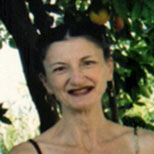
Toti O’Brien
Toti O’Brien is the Italian Accordionist with the Irish Last Name. She was born in Rome then moved to Los Angeles, where she makes a living as a self-employed artist, performing musician, and professional dancer. Her work has most recently appeared in Indiana Voice, Heavy Feather, Mothers Always Write, and Scryptic.

Monica Ong
Monica Ong is the author of Silent Anatomies (2015), selected by Joy Harjo as winner of the Kore Press First Book Award in poetry. An MFA graduate in Digital Media at the Rhode Island School of Design, she has also been awarded fellowships at Kundiman, Millay Colony, Vermont Studio Center, and the Fine Arts Work Center in Provincetown. Based in Connecticut, she currently serves as the User Experience Designer at the Yale Digital Humanities Lab.

Irma Pineda
Irma Pineda is an author, editor, translator, and educator in Juchitán, Oaxaca, Mexico. She has published six books of bilingual Spanish-Zapotec poetry, with her seventh forthcoming in 2018. She has served as poet-in-residence at institutions in the US and Canada and has presented her bilingual poetry at festivals in Ecuador, Italy, Russia, the United States, and elsewhere. She serves on the faculty of the National Teachers University in Ixtepec, Oaxaca.

Meghan Privitello
Meghan Privitello is the author of A New Language for Falling Out of Love (YesYes Books, 2015), Notes on the End of the World (Black Lawrence Press, 2016), and One God at a Time (YesYes Books, 2019). Poems have appeared in Boston Review, Kenyon Review Online, Guernica, A Public Space, Best New Poets, Please Excuse This Poem: 100 New Poets for the Next Generation, and elsewhere. She is the recipient of a NJ State Council of the Arts Fellowship in Poetry.

Peg Alford Pursell
Peg Alford Pursell is the author of Show Her a Flower, A Bird, A Shadow, a collection of flash fiction, micro-fictions, and hybrid prose with praise from Peter Orner, Joan Silber, Antonya Nelson, and others, and featured by Poets & Writers in their second annual 5 over 50 in November 2017. Her work has appeared in Permafrost, the Los Angeles Review, Joyland Magazine, and other journals and anthologies. She is the founder and director of the national reading series Why There Are Words and of WTAW Press.
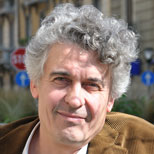
Fabio Pusterla
Fabio Pusterla was born in Canton Ticino, Switzerland, in 1957. He lives and works between Lombardy and Lugano. He is the author of several collections of poetry, including Things without History, Stellar Body, and Argéman. He has also authored a collection of essays, Arnold’s Nerve, and two books of translations of Francophone poet Philippe Jaccottet. High Ground, his selected poems, was published by Einaudi in 2009.
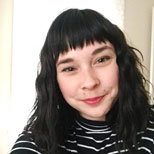
Michelle S. Reed
Michelle S. Reed’s first book of poems, I Don’t Need to Make a Pretty Thing, was a runner-up for the Hudson Prize and is available from Black Lawrence Press. Her poems have appeared or are forthcoming in Verse Daily, The Fem, Reservoir, and Salt Hill, among others. She is currently an MFA candidate and teacher at University of North Carolina-Greensboro. She writes nonfiction when she is feeling very brave.

Anjoli Roy
Anjoli Roy is a creative writer, an editor, and an instructor in the English Department at the University of Hawai‘i at Mānoa. In fall 2017, she successfully defended her dissertation, titled Where the Water Is, which is a book-length collection of creative nonfiction stories about growing up as an ambiguously brown Bengali and white girl in southern California, experiences of chronic illness, and the presence of ancestors in our lives despite boundaries of time and national borders. Anjoli's creative writing has appeared in online and print literary journals and edited collections, including The Asian American Literary Review, Hawaiʻi Review, Hippocampus Magazine, Kore Press’s Poem of the Week, Kweli, River Teeth, and Spiral Orb. Anjoli is also a radio DJ for KTUH FM. Her show, "It’s Lit with PhDJ," features writers to love and the music their work plays best around. Anjoli is from Pasadena, California. She is a mashi to six, a godmother to one, and is the last of her parents’ three girls. She loves cats, surfing with friends or alone, and the rain that she oftentimes wakes up to in Pālolo Valley.
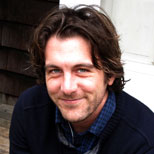
Will Schutt
Will Schutt is the author of Westerly, winner of the 2012 Yale Series of Younger Poets Award. His translation of the Selected Poems of Edoardo Sanguineti is forthcoming from Oberlin College Press.
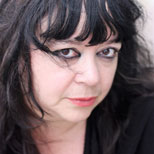
Diane Seuss
Diane Seuss’s most recent collection, Four-Legged Girl, was published in 2015 by Graywolf Press and was a finalist for the Pulitzer Prize. Wolf Lake, White Gown Blown Open won the Juniper Prize and was published in 2010. Her fourth collection, Still Life with Two Dead Peacocks and a Girl, is forthcoming from Graywolf Press in May 2018. Seuss was raised in rural southwest Michigan.
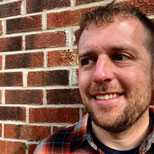
Will Stockton
Will Stockton is a professor of English at Clemson University in South Carolina. His poems have appeared in journals including Animal, Assaracus, Bloom, and PANK. With D. Gilson, he is the author of Crush(Punctum Books, 2014).

Hadassa Tal
Hadassa Tal is an Israeli poet who received the Lea Goldberg Prize for Poetry and whose work has been published in several languages. Her latest book, May be, was published with Hakibbutz Hameuchad earlier this years, and is a collection of poems dealing with the death of Tal’s daughter. Much of her work has been set to music.
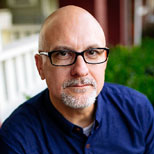
Sidney Thompson
Sidney Thompson’s short story “Love in a Crooked State͟” is a sequel to the story ͞Levee,͟ which appeared in Issue XI of Waxwing. His fiction has also appeared in Atticus Review, The Carolina Quarterly, Clapboard House, The Cleaver Magazine, The Cortland Review, Flash: The International Short-Short Story Magazine, Grey Sparrow Journal, Prick of the Spindle, Ragazine.cc, The Southern Review, storySouth, and elsewhere. He lives in Fort Worth, where he teaches creative writing and African-American literature at Texas Christian University.

Letitia Trent
Letitia Trent’s work includes the novels Almost Dark and Echo Lake, and the poetry collections Match Cut (forthcoming August 2018) and One Perfect Bird. Her poetry, fiction, and nonfiction has appeared in Fence, Black Warrior Review, Smokelong Quarterly, The Daily Beast, and The Nervous Breakdown, among others. Trent lives in an Ozark mountain town with her husband, son, and three black cats.
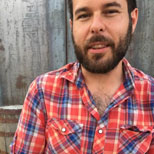
Zach VandeZande
Zach VandeZande is an Assistant Professor at Central Washington University. He is the author of the novel Apathy and Paying Rent (Loose Teeth, 2008) and the forthcoming Lesser American Boys (Ferry Street Books, 2018). His work has appeared or is forthcoming in Ninth Letter, Gettysburg Review, Yemassee, Georgia Review, Cutbank, DIAGRAM, Sundog Literature, The Adroit Journal, and elsewhere. He likes you just fine.

Kami Westhoff
Kami Westhoff is the author of Sleepwalker, the winner of Minerva Rising’s 2016 Dare to Be Chapbook Prize. Her work has appeared in various journals including Meridian, Third Coast, Carve, West Branch, Redivider, The Pinch, decomP, and Passages North. She teaches creative writing at Western Washington University in Bellingham, WA.

C. Dale Young
C. Dale Young is the author of four collections of poetry and The Affliction, a novel in stories due out from Four Way Books in March 2018. Two of the stories in The Affliction appeared originally in Waxwing. A recipient of fellowships from the National Endowment for the Arts, the John Simon Guggenheim Memorial Foundation, and the Rockefeller Foundation, he is the Fellowship of Southern Writers’ 2017 recipient of the Hanes Award for Poetry. He lives in San Francisco.
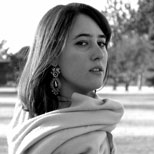
Natalie Scenters-Zapico
Natalie Scenters-Zapico is the author of The Verging Cities (Center for Literary Publishing, 2015), winner of the PEN American/Joyce Osterweil, GLCA, and NACCS book awards. Her second book, Lima :: Limón, is forthcoming (Copper Canyon Press). She holds fellowships from the Lannan Foundation and CantoMundo.
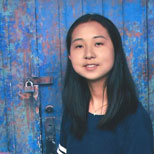
Lily Zhou
Lily Zhou is a student from the San Francisco Bay Area. Her work appears or is forthcoming in Best New Poets 2017, Tin House, Sixth Finch, Vinyl, The Adroit Journal, and NightBlock. She has been nominated twice for Best of the Net.


